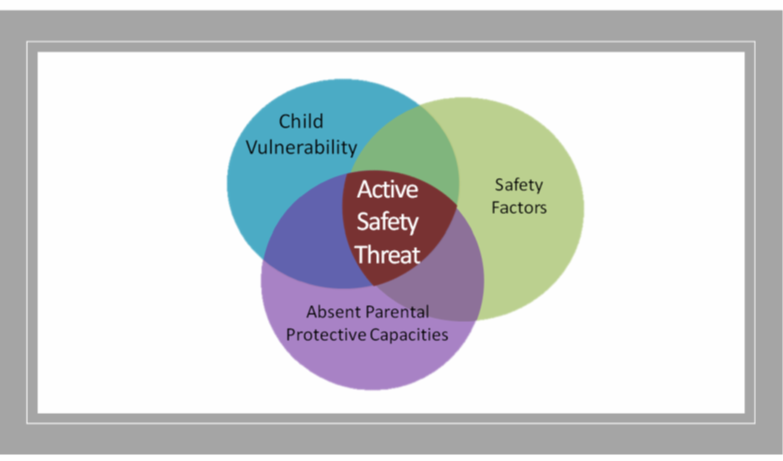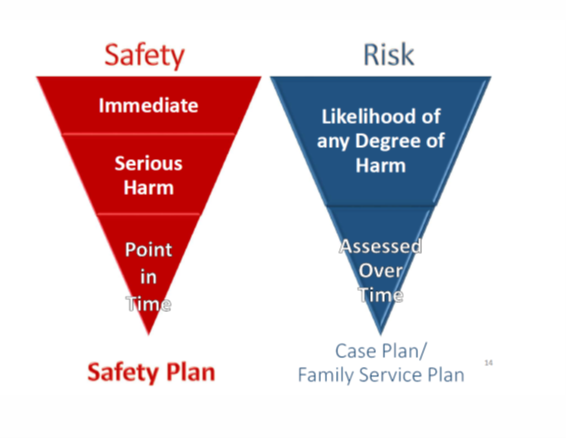|
Recently the Ohio Revised Code was Revised to allow children to remain in their foster homes instead of with Kinship placement, that could be strangers to the children. This could ultimately give foster parents more rights involving dependency cases.
Title 21 | Courts-Probate-Juvenile Chapter 2151 | Juvenile Court Ohio Rev Code § 2151.4118 (2020)Effective: September 30, 2021 A court may issue an order that determines, with respect to a child described in section 2151.4116 of the Revised Code who is not receiving care in the home of a kinship caregiver, that the continuation of the child's current placement is in the child's best interest and that intensive efforts to identify and engage an appropriate and willing kinship caregiver for the child are unnecessary if the court makes the findings in section 2151.4119 of the Revised Code. Last updated August 6, 2021 at 2:51 PM Section 2151.4119 | Findings supporting court determination. A court may issue an order under section 2151.4118 of the Revised Code if it finds all of the following: (A) The child has been living in a stable home environment with the child's current caregivers for the past twelve consecutive months. (B) The current caregivers have expressed interest in providing permanency for the child. (C) The removal of the child from the current caregivers would be detrimental to the child's emotional well-being. Last updated September 15, 2021 at 6:12 PM Legislative text: https://search-prod.lis.state.oh.us/solarapi/v1/general_assembly_134/bills/hb289/IN/00/hb289_00_IN?format=pdf What does this mean if your child is in foster care? That if they are in a foster placement
0 Comments
JFS contacted you that they would like you to agree to a Safety Plan. What should I do? THERE ARE THREE TYPES OF SAFETY PLANS: Voluntary In-Home: This is implemented on the JFS 01409 CAPMIS Safety Plan. Voluntary Out-Of-Home: This is implemented on the JFS 01409 CAPMIS Safety Plan. Legally Authorized Out-Of-Home: This child is legally removed from the home and temporary custody is given to the PCSA or relative/kin. The JFS 01409 Safety Plan is not required to be completed. The court complaint and motions will provide the justification of how this safety response will immediately protect the child. Although not the intent, these safety plans could go on for years, with little third party oversite. The benefits of agreeing to a safety plan is to avoid JFS taking custody of the child/dren. This is a reasonable effort that JFS must attempt prior to filing for custody. However, for JFS to gain custody they would first need to prove that the child would be at risk of harm if JFS did not step in and take custody. If they can't meet the burden, than their motion will be denied. SHOULD YOU COOPERATE WITH JFS? It depends on the circumstances. If the allegation involves significant harm to your child yes. However, cooperation is voluntary, but they could argue that your failure to cooperate showed a lack of protective capacity. If you ask that JFS speak to you only with your attorney present, they will cease any further communication, but they could also choose to seek legal custody. If JFS has not taken legal action, they will not appoint you an attorney or a Guardian ad Litem for the child. A SAFETY PLAN IS VOLUNTARY You can discontinue the safety plan at any time. You may change placement providers or ask that the safety plan be terminated. The agency may or may not file for custody if the determine the risk still exists. WHAT TO EXPECT ON A SAFETY PLAN There will be certain rules in place, depending on whether the safety plan is an in or out of home plan. This may require supervision of persons with the children. They will ask you for names of persons who could be listed on the safety plan. More than one person may be named as safety plan providers. They may ask you to participate in assessments and follow those recommendations. This is part of a case plan. You should make sure you understand what is expected to terminate the safety plan. JFS cannot supervise visits, so if supervised visits are required, they will need to be conducted by the safety plan provider or other approved persons. SHOULD I BE A SAFETY PLAN PROVIDER? If you choose to be a safety plan provider, make sure you and the parents under stand the rules. Failure to comply with the safety plan could prevent you from continuing as a placement provider if JFS seeks custody.
Each Ohio county has a child protective services agency that addresses allegations of child abuse, neglect and dependency. These agencies are charged with investigating the allegations and determining their veracity. What rights do I have if a caseworker comes to my home? Unless the caseworker has a court order, you do not have to allow the caseworker into your house, permit her to talk to your children, sign releases for any of your personal information or consent to any evaluations or tests. You also have a right to have an attorney present when you talk to a caseworker. What happens if, based on the caseworker’s visit, the agency decides that my children are being neglected or abused? In such a case, the agency may either ask you to work a voluntary case plan, or may file a complaint for a shelter care hearing in juvenile court asking the state to intervene on behalf of your children. What happens if a complaint is filed against me? A hearing must be held within 72 hours after a complaint is filed. This first hearing is a called a shelter care hearing. At this hearing, the agency must prove to the court that your children should not be returned home. A Motion for Removal from Shelter Care may be filed in response. A party to the case, including a parent, legal custodian, guardian ad litem, agency or prosecutor can request a removal from shelter care hearing if (1) the child was removed from the care of a parent or legal custodian and put into placement in foster care or with a relative or other individual, AND (2) either of the following occurred: (a) they were not served or given notice of that initial Shelter Care hearing, or (2) there is a change in the situation of the child or the parent/legal custodian that would give rise to a request for the parent or legal custodian to request the child be released from shelter care and returned to them or a parent or legal custodian. If your children are found to be abused, neglected or dependent, the court will schedule a dispositional hearing where a case plan will be adopted and the temporary placement of your children will be determined. |
Archives
February 2024
Categories
All
|

 RSS Feed
RSS Feed


